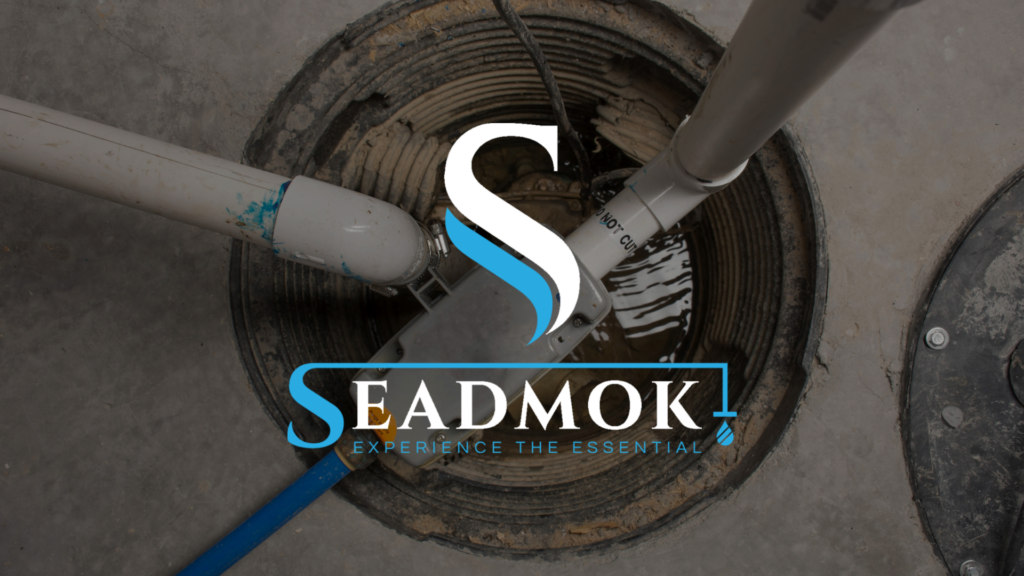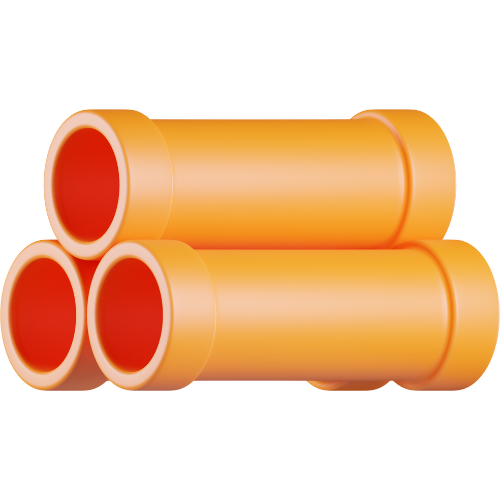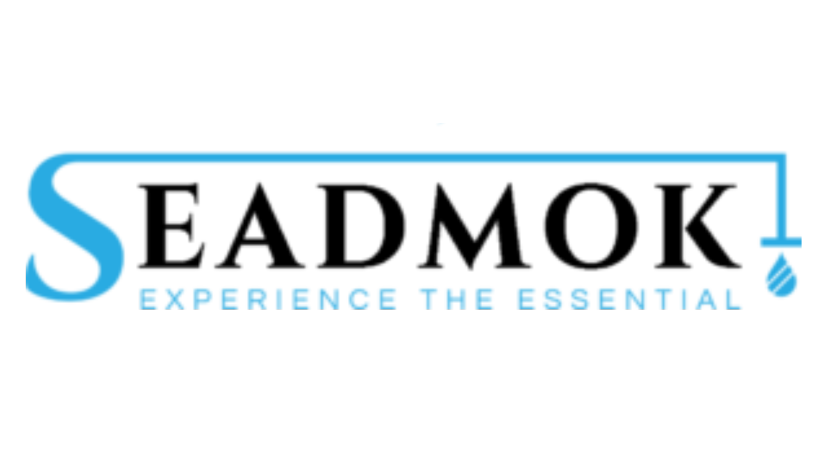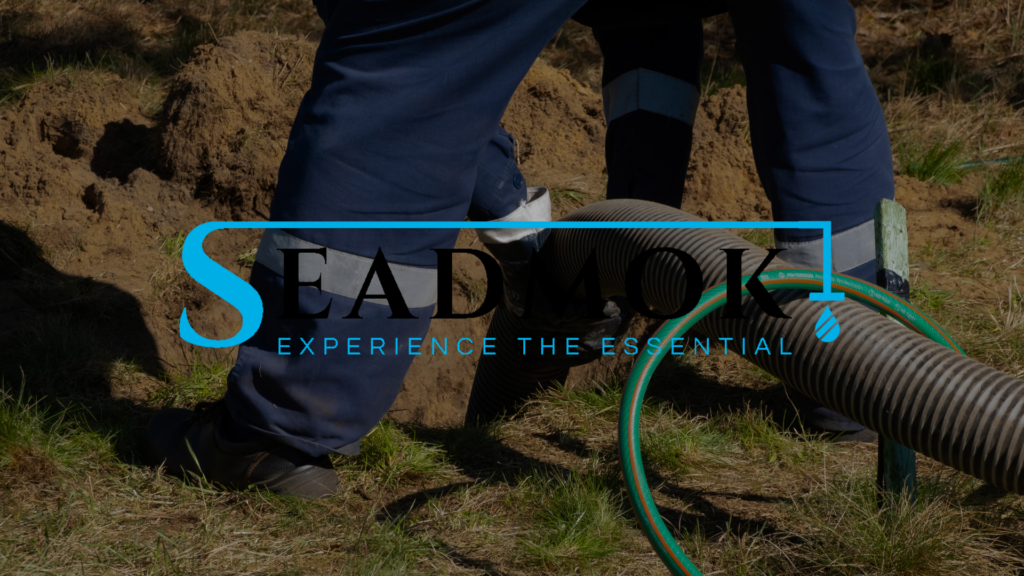
What Causes Sewer Backups? A Guide
Introduction to Sewer Backups
Sewer backups are a severe issue many homeowners face, often leading to significant property damage and health risks. Understanding the causes and prevention of sewer backups is essential for maintaining a safe and functional home. Sewer backups can result from issues ranging from simple blockages to more complex infrastructure problems. Homeowners should proactively address these potential risks to avoid a sewer backup's costly and unpleasant consequences.

Have Questions About Your Options When it Comes to Sewer Backups?
Seadmok serves Greater Baltimore & Washington D.C.
Let’s Get Started
Detailed Causes of Sewer Backups
Sewer backups can occur due to several underlying issues, each with complications. By identifying the specific cause of a sewer backup, homeowners can take appropriate actions to prevent future occurrences. Below are some of the most common causes of sewer backups.
Grease Accumulation
Grease is a leading cause of sewer backups, particularly in residential areas where cooking fats and oils are frequently disposed of down the drain. Over time, grease solidifies and clings to the inside of sewer pipes, gradually building up until it creates a blockage. Even small grease can contribute to significant clogs, especially when combined with other debris. Homeowners should avoid pouring grease down the drain and dispose of it in the trash to prevent this common problem.
Flushable Wipes and Other Non-Disintegrating Items
Many products labeled as "flushable" are unsafe for sewer systems. These items break down slower than toilet paper, leading to blockages and backups. Below is a list of items that should never be flushed:
- "Flushable" wipes
- Feminine hygiene products
- Paper towels
- Cotton balls and swabs
- Dental floss
- Diapers
- Condoms
- Hair
- Cat litter
- Tissues
- Bandages
- Medication
- Cleaning cloths or rags
- Q-tips
- Cigarette butts
Even products designed for toilet use, like wet wipes, can cause severe blockages if flushed regularly. To avoid clogging the sewer system, homeowners should dispose of these items in the trash rather than down the toilet.
Tree Root Intrusion into Sewer Lines
Tree roots are another significant cause of sewer backups, particularly in older homes with aging sewer lines. Roots naturally seek out moisture, and sewer pipes are an ideal target due to the constant presence of water. As roots grow, they can infiltrate small cracks or joints in the pipes, eventually leading to significant blockages or collapse. This problem is especially prevalent in properties with large, mature trees near sewer lines. Regular inspections and maintenance can help detect and address root intrusion before it becomes a significant issue.
Main Sewer Line Problems
Issues with the main sewer line can cause backups throughout an entire property. These problems can stem from various sources, including aging infrastructure, blockages, or damage to the main line. For instance, old pipes made from clay or other deteriorating materials are more susceptible to cracks and leaks, which can lead to blockages. Additionally, if a sewer line collapses or becomes misaligned, it can cause severe backups that affect multiple homes in a neighborhood. Addressing main sewer line issues often requires professional intervention to resolve the problem correctly.
Navigating Clogged Sewer Laterals – Prevention and Repair
Sewer laterals are essential pipes that connect a home's plumbing system to the public sewer main. They play a crucial role in transporting wastewater away from homes for proper treatment and disposal.
Preventative Measures and Homeowner Tips
Preventing sewer backups is far more accessible and cost-effective than dealing with the aftermath of a backup. Homeowners can take several steps to minimize the risk of sewer problems, ranging from regular maintenance to carefully considering what is disposed of down drains and toilets.
Regular Maintenance Recommendations
Regular maintenance is crucial for preventing sewer backups. This includes scheduling routine inspections of your sewer lines, mainly if you live in an older home or an area with large trees. Professional plumbers can use specialized equipment, such as cameras, to inspect the inside of your pipes and identify any potential issues before they escalate. Additionally, homeowners should be mindful of what they put down their drains and avoid disposing of grease, large food particles, or non-disintegrating items in the plumbing system. Even with regular maintenance, being proactive about what goes down the drain can significantly reduce the risk of a sewer backup.
Over-the-Counter Solutions vs. Professional Services
While many over-the-counter solutions are available for dealing with minor clogs and sewer issues, these should be used with caution. Chemical drain cleaners, for example, can cause damage to pipes and are often ineffective against more severe blockages. They may offer a temporary fix but do not address the underlying problem, which can lead to recurring issues. In contrast, professional services provide a more comprehensive sewer maintenance and repair approach. Plumbers have the expertise and tools necessary to diagnose and resolve sewer problems effectively, preventing further damage and ensuring the long-term health of your plumbing system. For anything beyond a minor clog, seeking professional assistance rather than relying on DIY methods is advisable.
How Seadmok Water Helps with Sewer Backups
Seadmok Water provides essential services to help homeowners prevent and address sewer backups. Our team of experienced professionals offers comprehensive sewer line inspections, maintenance, and repair services, ensuring that any issues are identified and resolved before they cause significant damage. Seadmok Water uses advanced technology to detect problems such as tree root intrusion, pipe deterioration, and blockages, allowing prompt and effective intervention. By partnering with Seadmok Water, homeowners can have peace of mind knowing that their sewer systems are in good hands, reducing the risk of costly backups and repairs.

Conclusion
Sewer backups can be a daunting issue for homeowners, but they can be avoided with the proper knowledge and preventative measures. Understanding the causes of sewer backups, such as grease accumulation, non-disintegrating items, tree root intrusion, and main sewer line problems, is the first step in preventing them. Regular maintenance and professional services are crucial to properly functioning your sewer system. Seadmok Water offers the expertise and tools necessary to protect your home from sewer backups, ensuring you can avoid the stress and expense of this common problem. Homeowners can maintain a safe and reliable sewer system by staying proactive and enlisting professional help when needed.

